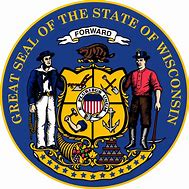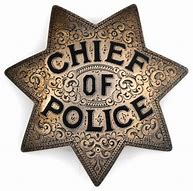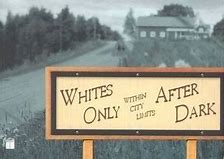.
Jeny asked me what my last blog was about. I said dialog. She said—“You have spent a lot of time on that topic.”
She is right as she often is. I care deeply about dialog, but I despite the impeachment falderal being a constant reminder of the need for civil discourse, I will give my passion for dialog a little rest.
Not just the South: Living in the South for almost 40 years I am well aware of racial issues in southern history. In response to last week’s blog I got a very moving email about race from a long time friend. It was a great reminder to me that my racial experiences were very naïve to racial issues. I want all of you to hear his own words of events in Wisconsin in the 1960s:

“Your blog reminded me of an experience I had – years ago – with the lack of civil discourse around race relations. Here’s what happened.
My growing up years were spent in Central Wisconsin and Central Illinois. While much of the civil rights movement seemed to play out in large cities and Southern States, the lack of civil discourse was just the tip of the iceberg in small cities across the Midwest.
One year, when we lived in Wisconsin, my father agreed to host two, black, Nigerian seminary students for the summer. He got them summer jobs in a cannery on the edge of town and arranged a place for them to stay where they could walk to work.

We greeted the students on their arrival at the airport and put them up in our home as we worked to get them situated in their new apartment. On the afternoon of the second day, the Chief of Police knocked on our front door. He was a good friend of the family and someone I had known virtually my entire life.
My father had just come home from work and we were about to sit down for dinner. He and the Chief went straight into my dad’s home office and shut the door.
A few minutes later, they emerged and informed us that the Chief and his team could no longer assure our safety. If the sun went down again on two black men in town, he was quite sure there would be a lynching. The violence would likely include gunfire, burning our beautiful home to the ground and hanging both men in a park outside the city limits.
The Chief told us there were varying opinions about what would happen to us for the “sin” of bringing black people into our community. He told us his Police Department did not have the resources to win this fight. His men would be out gunned and likely killed in an effort to protect us.
The Chief was wearing a bullet proof vest. He voice and hands were shaking with fear and emotion. There was no question in my mind how serious and urgent the situation was.
The Chief indicated there were also men with guns in the area. At any moment, one or more of these guns could be pointed at the house. The potential was high that one of them would take a shot at the house in an effort to scare us. For that reason, we were told to stay away from the windows.
While my father was keen on opening up a dialogue with the leaders of this mob, out of respect for the Chief, concern for the safety his officers and fear for his family and the students, he called his contacts in Chicago and arranged to meet them along an interstate highway where he could hand the students off to another person who could shuttle them safely back to the Chicago area. The Nigerians packed their things, loaded them in the trunk of my father’s car and proceeded to lay down on the floor in the back seat.
I remember this well because I jumped in the passenger seat as my father opened the garage door, backed out and drove away followed by the Chief of Police. Once we were well outside the city limits, the Chief circled back to town to inform members of the racist mob that the “threat” was gone. Those plotting violence would be asked to stand down. However given the level of anger, the police were parked outside our home for several weeks and plain clothes officers kept an eye on my father’s office and my sisters as they went to and from school.

Years later, when we moved to Central Illinois, the scourge of hatred, bigotry and racial prejudice were more than evident. A sign on the edge of a town near ours warned black people not to let the sun go down on their presence in town. While we had moved hundred of miles South, we recognized the climate hadn’t changed.
We never learned the names of the people behind the threats of violence in Wisconsin, but the Chief of Police told us we would know many of them by name. He told us that we worshiped with them, we did business with them and we socialized with them. In fact, many of these people, he said, had been in our home and we had been in their homes. That was incomprehensible to me – but true!
The experience made me deeply ashamed to be a white person. I knew that in the eyes of most blacks, the stain of racism, prejudice and bigotry was all over me because of the color of my skin. I didn’t like it, but I would have to live with that knowledge.
I was glad I was not black and had to face the problems they face. While racial equality seemed like an inevitability to me, the magnitude of the barriers seemed almost insurmountable. I wanted to be in the fight but I was deeply concerned about the cost of winning the battle for racial equality. I anticipated lives that would be lost and many heads and bones would be broken in the process.
To this day, I marvel at the strength, courage and vision of Dr. Martin Luther King. While many are quick to point out he was not a perfect man, I respected and admired his ability to calmly articulate his positions on the issues. His insistence on non-violence in the face of unspeakable violence; his message of love in the face of hate – it took my breath away then and still does.
I experienced a tiny fraction of what it was like to be near the sharp end of the spear – to experience a bit of the evil in the world. I believe the only thing more powerful than evil is love. I believe love thrives when we are in community; when dialogue is encouraged. That is why I love The Proverbial Student and your blog about civil discourse and dialogue. Our country needs it now. Our world needs it now.”
Wow—what a formational story—his experiences were certainly very different from mine.
My thanks to him and the many others who have responded to me with experiences and encouragement.
Racial issues were not—and are not – an exclusively southern issue, but rather a widespread issue that deserves our vigilant concern.
Until next week,
Go Chiefs!
Peace,
Jerry
0 Comments